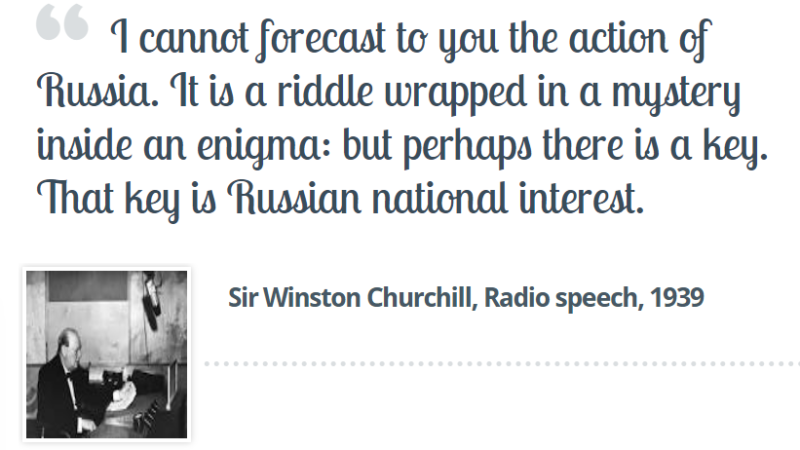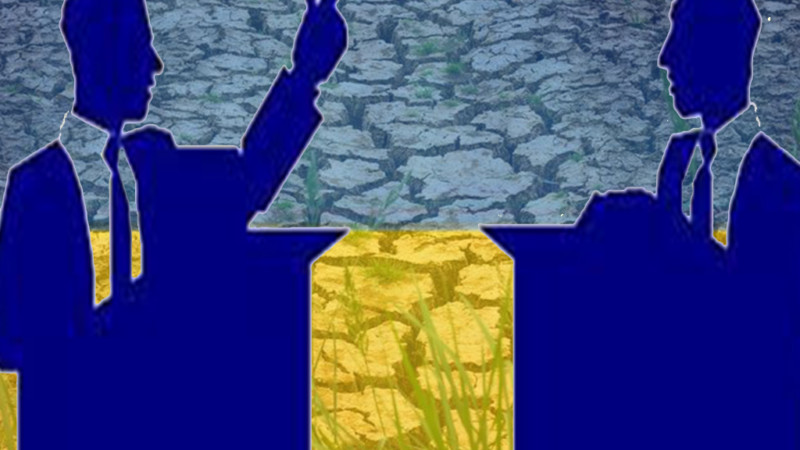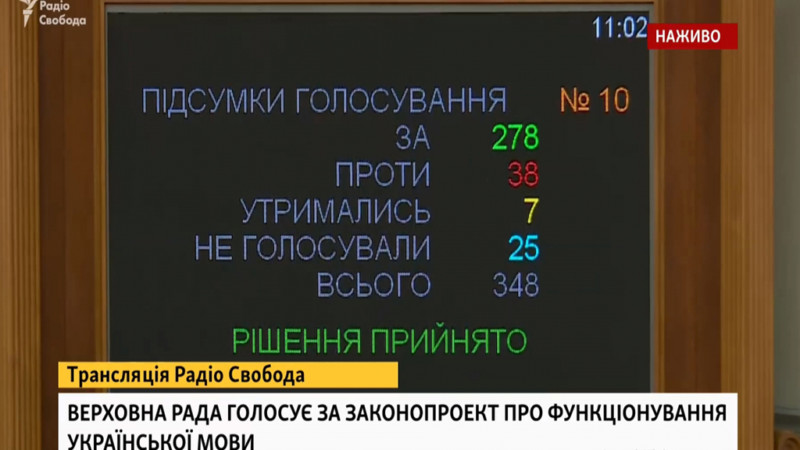How the tenacious Soviet past continues to hinder Ukraine’s reform efforts, or, The importance of human capital in a post-totalitarian country
How the tenacious Soviet past continues to hinder Ukraine’s reform efforts, or, The importance of human capital in a post-totalitarian country
After the recent days of discussions—firstly around the controversial Оctober 27 decision of the Constitutional Court of Ukraine to revoke the country’s compensation transparency legislation as unconstitutional, and then of the no less controversial steps taken by the President (with ulterior motives of his own) to disband the self-serving CCU—I was struck yet again by one thing. It seems that a huge proportion of the educated (!) urban class completely seriously believes that: (a) mass arrests are the main way to combat corruption; (b) unscrupulous bureaucrats are the main reason for corruption; (c) successful reforms can be guaranteed by appointing “dеcent people” (but how do we measure decency?); and (d) apparently they are totally oblivious of the imminent threat of Ukraine’s entire legal structure collapsing. Moreover, these people cannot see the mechanisms by which such potential events would be followed by chaos, material ruin, and actual physical danger to themselves.
Certainly we could shift the blame onto the media and its repressive stream of anti-corruption propaganda. But to do so we would have to concede two things: first, that any propaganda is effective only if it resonates with favourable ideological receptors; and second, that fans of repressive means of combating corruption—and other faults of the state—hardly sprang up out of nowhere but rather were raised and educated among the same Ukrainians as the rest of us, including those whom they oppose.
There are three discernible reasons for the present developments.
1. Soviet inertia. In the Sovok,[1] problems were attacked using the method “no person, no problem.” In the Sovok, everything depended on the willful decisions of the vozhd ‘supremo’, and the conveniently arbitrary standard was “revolutionary justice.”
We still have the same conditions today, when in the name of striving for a better future we step over the law and eliminate dissenters…but sooner or later it comes back to bite us. Because the laws that could defend us have been trampled. Unfortunately, in seventy years of Soviet rule everyone got used to the primacy of power instead of the rule of law, to the practice of “telephone law/justice,” et cetera.
Furthermore, the Sovok state was actually an enemy of its own people, treating each of its citizens as a potential criminal. Controlling them was a matter, as the saying went, of “Better overdoing it than not catching them all.” Obviously, the lack of trust became entrenched and has persisted with us until this day. Thus, unsurprisingly, the attitude of constant debasement by the state against its citizens has provoked a subconscious desire by them to suddenly wreak glorious revenge on its front-line representatives, the bureaucracy.
Lest we forget, the basic modus operandi of the USSR was: “If you’re not with us, you’re against us!” This does not promote social compromise in the least.
So, all this is still flourishing in the subconscious of Ukrainians today, regardless of their political convictions, regional origin, or whatnot. But their potential to understand this, reflect objectively on the circumstances, and restrain themselves is further hindered by the next factor we shall examine below.
2. A lack of proper understanding, imagination, and strategic thinking in public affairs. During the Soviet period, understandably, humanities subjects were basically a platform for Communist ideology and insanely risky for those who pursued any semblance of truth.
Let us consider this from the perspective of Ukrainian history, for instance. Nothing but hopeless battles, invaders, heroic deaths, etc., leavened with dates and terminology. But what were they fighting for? How? What were the results? Who was to blame? These questions were never even approached, much less properly considered.
As a result, the astoundingly well organized and militarily unsurpassed Ukrainian Cossacks are vaguely half-comprehended merely as warriors and heroes but hardly as the formidable ruling class that they indeed were. Similarly, the nobility are perceived as renegades and exploiters but not at all as a military and administrative elite, while the complex relationship between the two groups is completely lost. Meanwhile, as an illustrative example, Dmytro Vyshnevetsky, who founded the Cossack nobility, and his enemy, the Polonized voivode Jeremi Wiśniowiecki, were descendants of the same princely family, even not too distantly related.
Along the same lines, what does the typical Ukrainian know about the UPA? That it fought for an independent Ukraine, but not that it established an entire underground alternative statehood. And so on… The internal logic behind the decisions concerning proper curriculum building in Ukrainian educational programs is an unfathomable, closely guarded secret to anyone being taught these disconnected assortments of facts.
But honestly, history should comprise the collective experience of a nation, beacons of institution building and best practices, lessons learned concerning actions taken and not taken—and an overall arch of milestones in civic consciousness. Instead, our history is presented as a constant struggle without any emphasis on the sense or mechanisms of it all, or on relating it to Ukrainians’ daily existence. Our scholars, builders, real national leaders (often deemed too boring and unremarkable compared to the brave Cossacks on horseback) are left backstage. So we’ve continued to struggle, not even realizing that we are replicating a three-hundred-year-old imperative that now pits us against our own state.
How about literature? Why should it be taught as “depressing texts” and mindless memorization of theory, when it could be taught as associative learning, as evolving trends, interrelationships, cultural sensitivity, and so many other things?
As for law studies, need we say more—and by the way, it is still being taught in schools?
And what do we have as a result? A bunch of “smart but not wise,” culturally naїve inhabitants of a land they neither know nor love with a true patriotic love. Here’s an assessment I compiled recently:
When they ask the President questions, they are thinking about the young journalist Heorhi Gongadze, beheaded on orders of a previous President [Leonid Kuchma, 2001].
They participate in various demonstrations on the Maidan, unable to ignore the images of the heroes of the Celestial Company [aka Heavenly Hundred].
They express audacious ideas, with brave human rights defenders at top of mind.
They thirst for fame.
But for all that, in their fervour they fail to distinguish between civic expression of will and a random mob, between democracy and mob rule, between protests against government decisions and desecrating national symbols, or between reasonable self-limitation and repressive censorship… They don’t understand that effective protection of citizens’ rights and property is only possible within a strong state framework. And that unless you’re secure in your own country, anywhere else on earth you shall be a fugitive and a vagabond, like Cain in the Bible.
They fail to comprehend that before Gongadze there were years of work and conscious opposition to Kuchma—not for being Kuchma but for specific steps he took.
Equally they fail to comprehend that it was not hatred of Yanukovych that was behind the Maidan but a protest against his servility before Moscow and the kleptocracy of his henchmen.
No one is asking what they stood for, or what was their goal.
They think in terms without understanding what they mean and why that is the term used and not another.
It’s a lack of experience—an educated inexperience, to be precise. An education lacking in critical thinking, an ability to think ahead, to distinguish between form and content, between the authentic and the superficial. Without this, absolutely everything becomes a cargo cult.
Because the ability to declare pretty phrases and wear a suit is, as Maritain said, “merely civilizational.” *
3. The glaring absence of the seemingly anachronistic concept of honour. In a totalitarian society this concept could not exist—and moreover, any proponents of this concept were driven into the underground, at the very least. Because honour implies an internal locus of control, an internal moral code, it’s about foreseeing the consequences of one’s actions, risking one’s honour, and taking responsibility—personal responsibility. These kinds of people are bound to be insubordinate.
But I’m talking not only of the aristocracy. In older times there were this idea of an “honest owner” and people would speak of an “honest death”—meaning dying content in the knowledge of being unblemished.
At the other extreme, in particular, was the consequence that when someone committed a crime, they were punished both for the crime and for the blemished honour. And the second punishment often entailed being thrown out of the circle of distinguished company.
Returning to Ukraine’s present predicament, in all its years of combating corruption no one declared that the corrupt figures also inflicted dishonour upon the nation. No one thought to ensure this “honour” by means of decent salaries, proper working conditions, and protection from terrible managers as well as from those who abused the law. Honour certainly also has a material dimension—looking respectable, obtaining an education, achieving a decent standard of living. All these things demand money, and if there is no money nor any honourable way of earning it, then even honourable people were forced to skirt the rules. One could hardly wonder, then, that our public servants and elected officials are uninspiring in the best case.
For me, “honour” as an imperative in the material sense started from something my late grandfather said as he addressed a family member who had avoided paying the fare when travelling home on a visit from university: “Proud of yourself, are you, for cheating Ukraine?” And also from my first visit to a government office when at sixteen I applied for my own passport; I asked my father how could they stand working in such a hole, and what an embarrassment it is for the country to make them do so.
Unfortunately, in Ukraine there is hardly any such “honour” at all—whether in the absence of any consistent expectation of polite behaviour, or decent working conditions that in themselves would discourage corruption, or an awareness that your behaviour reflects on the reputation of your given group and, ultimately, on the country as a whole.
*
Ukrainians are an extremely freedom-loving people. So this is the pattern: given a godawful president, we thrown him out, sometimes with bloodshed in the process, then we elect someone pretty decent, smear his head with mud, shit on him thoroughly, and then out of pique we elect a godawful president in revenge for the previous guy’s real or imagined crimes, then we throw him out…
And you know, I’m not even talking about Poroshenko or last year’s presidential elections.
Just saying.
Because it’s just too easy for anyone to be elected our leader if they can righteously shake their fist and claim to be “for the people”… examples abound, including the Cossack Havryliuk, Nadia Savchenko, and, most recently, Serhii Sternenko.
Of course, dictating to Ukrainians is a God-ordained right, no less. I recall reading a story in the memoirs of one of our émigrés: at some point he was forced to lay off most of his Ukrainian employees and hire Americans. The reason? Instead of following orders, the Ukrainians would remonstrate to ridiculous lengths, bluffing and faking their way with various ineffective suggestions or objections.
Moreover, our heroes are generally perceived as being those who fought against something. The Cossacks were against the nobility, the UPA insurgents were against the Bolsheviks, the anarchist Makhno was for “the people,” and so on.
By the way, UPA is notable above all because it created an alternative to the Sovok system by actually establishing a parallel underground state. Meanwhile, facts like the Cossacks often rebelled against their hetmans and Makhno interfered with the UNR Army are totally and persistently ignored.
Confront the average Ukrainian with their opinion that this candidate is bad, that one’s worse, and so who is there to vote for? And you are likely to be met with blinking eyes and silence, in the best-case scenario.
Yes, of course, this is the result of Ukraine’s difficult history. Yes, also the result of the enemy’s informational special ops. But they would not have been so successful if not for the Ukrainians’ penchant for kibbitzing.
What must be done?
A fundamentally new history, based on changed principles, must be taught in the schools of Ukraine:
1. Culture must be the overarching topic—not in the form of dates and names but as a system of concepts and behavioural exemplars, with a mandatory focus on analyzing origins and characteristics.
2. Each deed that is labelled heroic must be considered in detail in the proper temporal context, with the goal of clearly understanding what the heroism actually entailed. Same goes for all the shameful deeds, as well.
3. During the teaching process, role playing should be used as much as possible, e.g., “If you were in the position of the hetman under these circumstances, what would you do and why?”
4. The paramount point of reference should be Ukrainian statehood—not any kind of nebulous “freedom,” “values,” etc., but actually statehood, because only the state can guarantee both freedom and values.
5. Besides history, law and economics must also be taught, according to the above-described principles.
Because, as we well know, even monkeys can learn dates.
[1] Here used in the sense of the Soviet era and/or homeland of Homo Sovieticus, although the pejorative name sovok may also be used to refer to the people who maintain a blind nostalgia for that time and place, typically characterized by personal qualities such as chronic suspicion, willful passivity in civic affairs, insensitivity to the feelings of others, “grasshopper mentality,” etc.
Original published at https://www.facebook.com/1486637627/posts/10224189792480974
English translation by Ksenia Maryniak, CIUS/ASAUS



